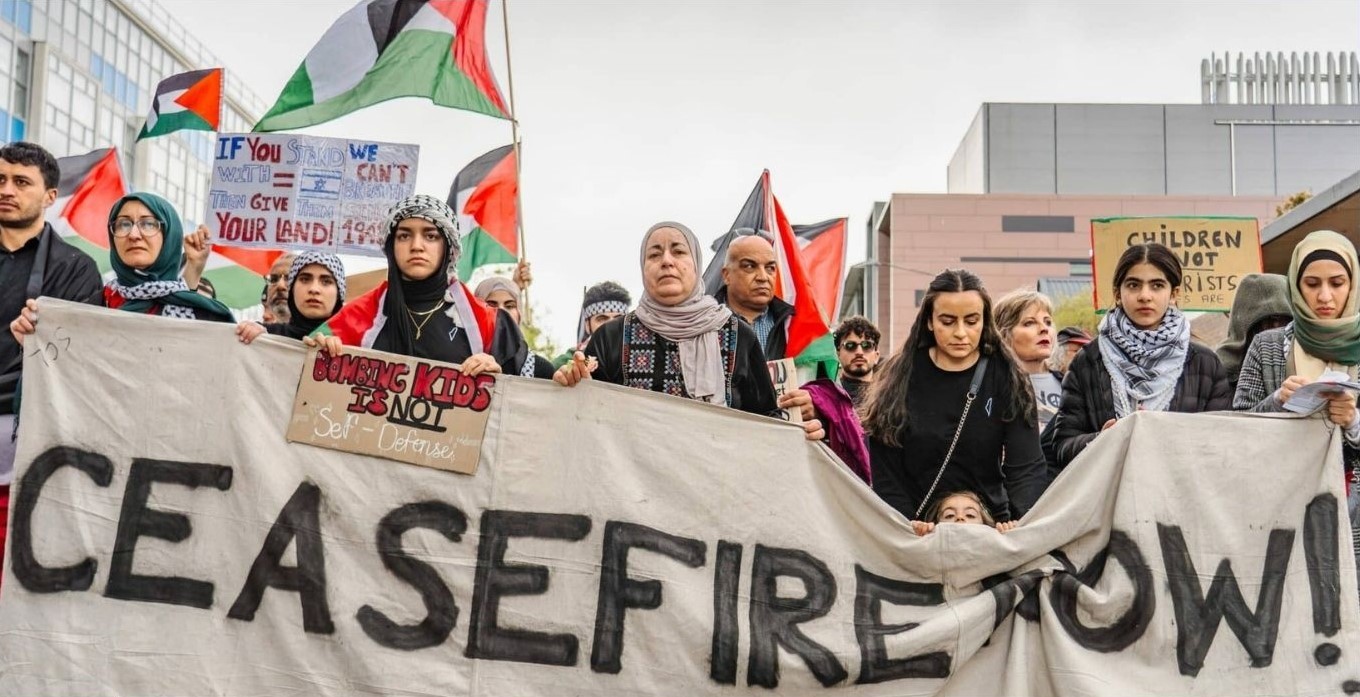This is an edited version of a speech delivered to a Business Briefing and Reception on 16 November 2015 at the Mission of Canada in Geneva
I have long held the view that harnessing the enterprise, creativity, innovation and resources of business is one of the most effective ways to promote and protect human rights.
Just over 15 years ago, one of the first matters I worked on as a junior lawyer with Allens Linklaters in Melbourne was to incorporate a pet foster care service for women fleeing domestic violence. The lack of accommodation options for pets was forcing many women to remain in dangerous homes. The motivations of the firm were largely altruistic, but there was a business case for such work too – Access Economics calculates that domestic violence cost the Australian economy some $14 billion in 2009.
Fast forward to 2015, and I am no longer the lawyer but the client. Leading global law firms DLA Piper and Freshfields Bruckhaus Deringer both provide substantial pro bono support to the International Service for Human Rights. Their work helps to strengthen the legal protection of human rights defenders, journalists, lawyers, anti-corruption campaigners and pro-democracy activists at the national and international levels. Again, the motivations of the firms include altruism, together with a genuine commitment to access to justice, but again there is also a business case for such work. Both corporations and human rights defenders have a shared interest in an environment which respects the rights to freedom of expression, association and assembly, and is characterised by transparent and accountable government, freedom from corruption, and respect for the rule of law.
As Nicolas Patrick of DLA Piper and Owen Larter of Microsoft recently wrote in an opinion piece for ISHR, ‘our collective experience certainly supports the belief that businesses thrive in communities that are rights respecting’. What is more, they say, ‘human rights defenders are crucial in fomenting rights respecting communities. It is therefore in our own self-interest as global businesses to support programmes which strengthen respect for human rights defenders and the rule of law across the globe.’
Regrettably, the operating environment for defenders is becoming increasingly restrictive and dangerous in many countries in which corporations, including major multinationals with corporate policies on human rights, increasingly operate and invest.
Azerbaijan, China, Honduras, Russia, Saudi Arabia, and the United Arab Emirates all immediately come to mind. In each of these countries, human rights defenders are criminalised for their work and routinely detained, disappeared and even killed in connection with their exercise of the rights to freedom of expression, association and assembly.
The situation for defenders working in the field of business and human rights is particularly precarious. In fact, UN Special Rapporteur Michel Forst recently reported to the UN General Assembly that they are among the most vulnerable and at risk groups in the world. Stigmatised and defamed in India as ‘anti-development’ or as ‘economic saboteurs’, murdered in Honduras for protesting the Agua Zarca Dam, or vexatiously prosecuted in Angola for exposing corruption in the diamond industry, these defenders are often caught between authoritarian governments and irresponsible business.
So what is responsible business to do?
I would suggest that there is a spectrum of actions for companies to take; some are legal obligations arising from the Guiding Principles and international law, others are good business practice and the right thing to do.
I would group these actions under four key categories:
- The first is the legal obligation of business, recognised in the Guiding Principles and derived from international law such as the ICCPR, to respect human rights defenders. This involves desisting from, or in any way being complicit in, physical or legal attacks against defenders, including those exercising their rights to freedom of expression, association, assembly and protest against the business or its interests.
- The second category of actions arise from the legal obligation, again recognised in the Guiding Principles, to engage with and consult defenders and the communities they represent in the design, implementation and evaluation of projects and in due diligence and human rights impact assessment processes. This is also, of course, good business practice. A recent opinion piece written for ISHR by former US Assistant Secretary of State and now NYU professor and ISHR Board member, Michael Posner, spells out the ways in which engagement and consultation with defenders can enhance supply chains. A companion piece by Brent Wilton of the Coca-Cola Company shows how engagement with defenders is essential to help that company achieve its goal of zero land grabs. Constructive engagement by business with defenders can help secure a social license to operate and to identify, avoid and mitigate human rights risks and costs.
- The third category of actions, making for good business practice, involves corporations partnering with and supporting defenders. This could involve providing financial and in-kind resources and support to defenders and their organisations, such as those generously provided to ISHR by Ashurst, DLA Piper, Freshfields and others. It could also involve corporations encouraging home and host governments to themselves consult, respect and protect defenders and to develop National Action Plans which include provisions to support them.
- The fourth and final category of actions, perhaps the most important but also the least common, involves business actively advocating and seeking remedy for human rights defenders and against laws and policies which restrict them. Such action could be private, as I understand to be the predominant approach of Adidas. It could also be public, such as the open letters and press statements issued by Tiffany & Co and others for the release of Angolan defender and journalist Rafael Marques. Such principled action stands in contrast to the general refusal of companies sponsoring the recent European Games in Azerbaijan, including some businesses in this room, to speak up against the repressive laws and widespread arbitrary detention of defenders in that State. These laws and actions have all but eliminated independent civil society. As Mauricio Lazala of the Business and Human Rights Resource Centre writes in his piece for ISHR, ‘Far too many companies still remain silent when human rights are at stake in repressive States but many companies are showing that speaking out against abuse is the right thing to do, both for moral reasons and for their own interest.’ Companies, Lazala says, ‘can be a powerful voice in the protection of the vulnerable in repressive countries, particularly where abuses are taking place linked to their industry or they are major investors.’ Microsoft and DLA Piper express a similar view in their joint piece, saying, ‘NGOs working in high risk environments can benefit from networks of support within the business sector, particularly large multi-nationals which have publicly stated a commitment to human rights’. DLA Piper and Microsoft go on to say that, ‘invisible networks of influential friends and supporters in the business community can be invaluable when things go wrong. We encourage human rights defenders to partner and work constructively with the business sector and foster partnerships and collaboration.’
For our part, ISHR is working to encourage and capacitate defenders to engage constructively and positively with business, recognising the vital contribution that responsible business can make to the promotion and protection of human rights and to sustainable development. With the expert advice and assistance of Allens Linklaters and DLA Piper, we have therefore drafted and are at this Forum launching a ‘Human Rights Defender Toolkit for Promoting Business Respect for Human Rights’. The Toolkit, written for defenders with the insight of business, and replete with good practice examples from companies around the world, will be, we hope, a contribution to strengthening understanding, trust and relationships between business and human rights defenders.
I’d like to conclude by emphasising once again that the key elements of a safe and enabling environment for human rights defenders, and a conducive investment and operating environment for business, are closely intertwined. Increasingly, defenders see this and are engaging directly with business where it is safe and appropriate to do so. And increasingly responsible businesses recognise this and are taking steps to respect, consult, support, protect and even advocate for defenders and against repression. I encourage you to share and build on this good practice, working with human rights defenders and standing with civil society to ensure a safe and enabling operating environment for all.




